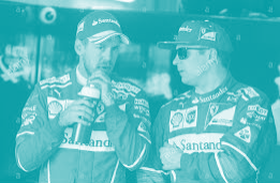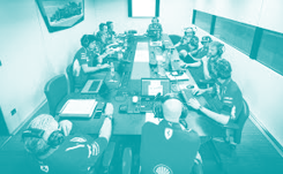Box Now is for people like us.
We offer free, peer support for people wondering about their alcohol use.
We offer free, peer support for people wondering about their alcohol use.
One-on-One
|
Group Discussion / Presentation
|
Corporate / Organization Strategy
|
Our overriding message is that getting help is a pit-stop on the road to best-ever living.
The only thing is, you have to actually pit the car. Box now.
All Box Now services are entirely free.
The only thing is, you have to actually pit the car. Box now.
All Box Now services are entirely free.
|
One-on-One Conversations Driver-Driver Consults
Sometimes you just want to talk with someone who has been in the same place. Many of us now in recovery used to think getting help was admitting defeat. We rationalized our drinking; tried to hide it; thought we could just "fix" it on our own. We couldn't. Finally, we came in for a pit-stop. And that has made all the difference. We are happy to share our experiences, lessons learned and observations about Alcohol Use Disorder and various forms of help. We are not medical professionals but we have extensive personal experience to draw from. Some things worked really well for us; other things less so. Let’s chat. We’ll both benefit. Please contact us through the web site and we can arrange to have a free, strictly confidential, peer-to-peer conversation
| |||||||
Group Discussion / Presentation Drivers' Meetings
The numbers would suggest that in any given group of 100 people, roughly 30 people exhibit unhealthy alcohol use, roughly 10 struggle with Alcohol Use Disorder and about 90% of those who need help won’t get it – mostly due to stigma and denial. Group discussions can be an effective way to reach and possibly motivate the surprising number of people in any given group who have AUD but will likely not seek help otherwise.
Further, these kinds of presentations / discussions can also be an effective way to raise awareness for all. Problems with alcohol often have profound effects on families and friends as well as individuals. Shifting the conversation about AUD beyond assumptions and stereotypes is a profound step forward.
We are happy to tailor a free group discussion or presentation to your interests.
The numbers would suggest that in any given group of 100 people, roughly 30 people exhibit unhealthy alcohol use, roughly 10 struggle with Alcohol Use Disorder and about 90% of those who need help won’t get it – mostly due to stigma and denial. Group discussions can be an effective way to reach and possibly motivate the surprising number of people in any given group who have AUD but will likely not seek help otherwise.
Further, these kinds of presentations / discussions can also be an effective way to raise awareness for all. Problems with alcohol often have profound effects on families and friends as well as individuals. Shifting the conversation about AUD beyond assumptions and stereotypes is a profound step forward.
We are happy to tailor a free group discussion or presentation to your interests.
|
Corporate / Organization Strategy
Pre-Race Strategy Employees with untreated AUD cost employers roughly 15% more than the average employee; however, employees who have recovered from AUD cost employers roughly 5% less than the average employee 1. Fewer than 1% of Functional Alcoholics report ever having used an Employee Assistance Program (EAP) 2. Box Now offers fresh, independent perspectives on barriers to seeking help for employees and strategies to overcome them. Box Now's Founder has a 20-year career in corporate and organizational strategy. We see significant value in applying many of these strategic principles to the challenges facing the AUD treatment gap. We are happy to provide pro bono consulting services to your firm to support your efforts to address addiction and AUD challenges and opportunities. The economic and employee engagement/satisfaction benefits can be significant. 1. Journal of Occupational and Environmental Medicine; A Substance Use Cost Calculator for US Employers With an Emphasis on Prescription Pain Medication Misuse, Eric Goplerud, PhD, Sarah Hodge, MPH, and Tess Benham, BS; November 2017 2. Subtypes of Alcohol Dependence in a Nationally Representative Sample; Howard B. Moss, Chiung M. Chen, and Hsiao-ye Yi, NIH, Drug Alcohol Dependency, December 2007 |
Other Resources
National Institutes of Health NIAAA Alcohol Treatment Navigator: Pointing the Way to Evidence-Based Care
alcoholtreatment.niaaa.nih.gov/
Unlike many other resources online, the Navigator has no commercial sponsors. Instead, it is produced by the leading U.S. agency for scientific research on alcohol and health, the National Institute on Alcohol Abuse and Alcoholism (NIAAA). The Navigator will steer you toward evidence-based treatment, which applies knowledge gained through decades of carefully designed scientific research.
National Institutes of Health NIAAA Rethinking Drinking: Alcohol and Your Health
https://www.rethinkingdrinking.niaaa.nih.gov/
Rethinking Drinking was first issued in 2009 and has been NIAAA’s most popular resource, providing evidence-based information to empower people to be mindful of—and to take charge of—their drinking patterns. The online tool provides information on short- and long-term consequences of alcohol misuse, signs and symptoms of alcohol use disorder, tips on how to assess your drinking patterns, strategies and tools for cutting down or quitting drinking and resources for peer, professional, and social support for cutting back on or quitting drinking.
U.S. Department of Health and Human Services
Substance Abuse and Mental Health Services Administration National Helpline
https://www.samhsa.gov/find-help/national-helpline
SAMHSA’s National Helpline is a confidential, free, 24-hour-a-day, 365-day-a-year, information service, in English and Spanish, for individuals and family members facing mental and/or substance use disorders. This service provides referrals to local treatment facilities, support groups, and community-based organizations. Callers can also order free publications and other information.
alcoholtreatment.niaaa.nih.gov/
Unlike many other resources online, the Navigator has no commercial sponsors. Instead, it is produced by the leading U.S. agency for scientific research on alcohol and health, the National Institute on Alcohol Abuse and Alcoholism (NIAAA). The Navigator will steer you toward evidence-based treatment, which applies knowledge gained through decades of carefully designed scientific research.
National Institutes of Health NIAAA Rethinking Drinking: Alcohol and Your Health
https://www.rethinkingdrinking.niaaa.nih.gov/
Rethinking Drinking was first issued in 2009 and has been NIAAA’s most popular resource, providing evidence-based information to empower people to be mindful of—and to take charge of—their drinking patterns. The online tool provides information on short- and long-term consequences of alcohol misuse, signs and symptoms of alcohol use disorder, tips on how to assess your drinking patterns, strategies and tools for cutting down or quitting drinking and resources for peer, professional, and social support for cutting back on or quitting drinking.
U.S. Department of Health and Human Services
Substance Abuse and Mental Health Services Administration National Helpline
https://www.samhsa.gov/find-help/national-helpline
SAMHSA’s National Helpline is a confidential, free, 24-hour-a-day, 365-day-a-year, information service, in English and Spanish, for individuals and family members facing mental and/or substance use disorders. This service provides referrals to local treatment facilities, support groups, and community-based organizations. Callers can also order free publications and other information.



